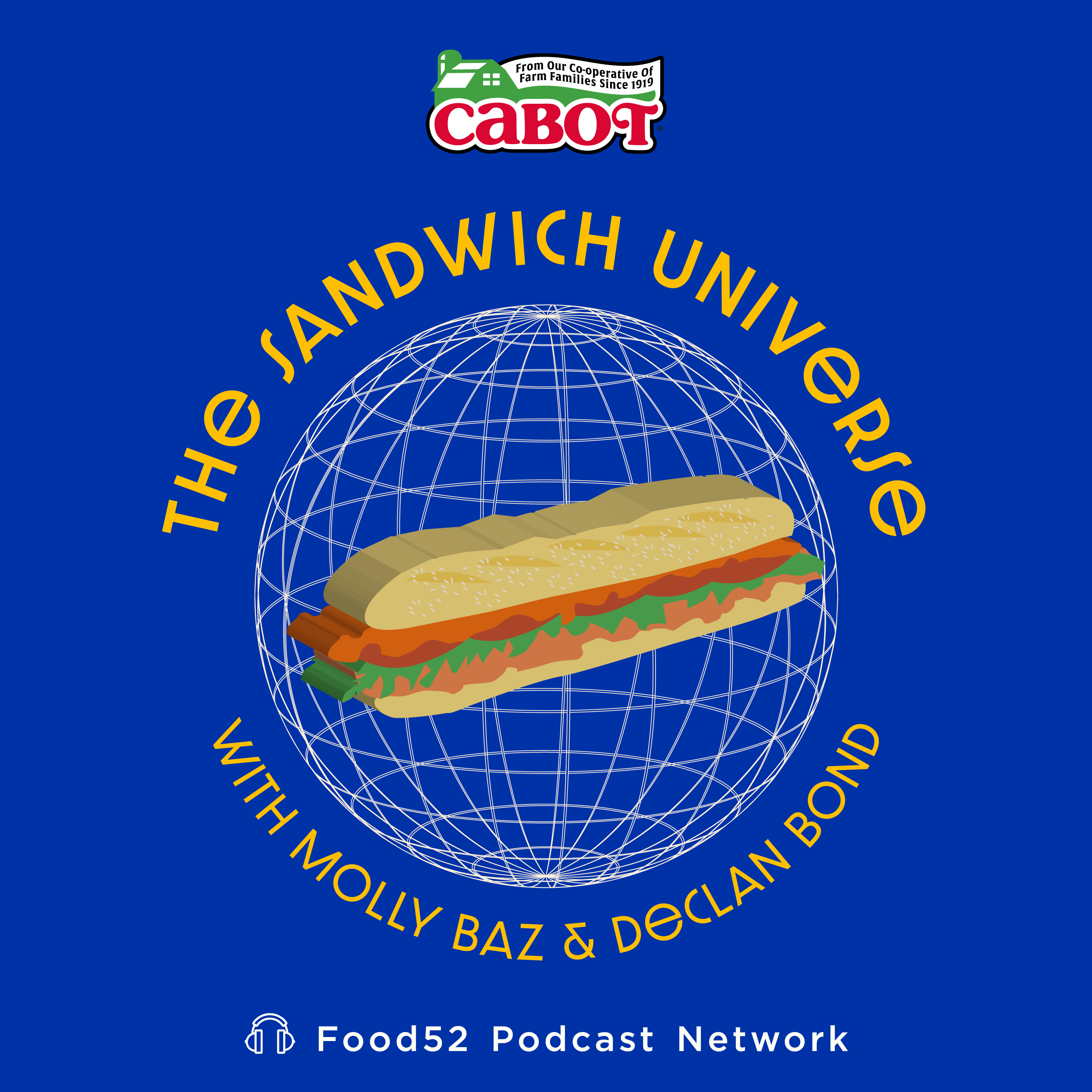
Join The Sandwich Universe co-hosts (and longtime BFFs) Molly Baz and Declan Bond as they dive deep into beloved, iconic sandwiches.
Listen NowPopular on Food52
9 Comments
Ytseg
September 1, 2017
For those who have actually read the book (or learned by experience) It's not necessarily advising to add larger quantities but timing (when to salt) that transforms the end product. This fact is even literally illustrated right down to a discussion on types of salt to consider for prepping, cooking and finishing.
Old T.
July 3, 2017
While I sympathize with everyone's concerns, I'd humbly suggest that the conventional thinking about salt that has dominated for many decades has finally begun to change and was never based on good science to start with. As an introduction to these changes, perhaps read this article from Scientific American (https://www.scientificamerican.com/article/its-time-to-end-the-war-on-salt/), or this article from the New York Times (https://www.nytimes.com/2017/05/08/health/salt-health-effects.html?_r=0). Samin is right that only salt can help the flavor and aroma of food blossom because it releases flavor compounds otherwise trapped in the food. Herbs and spices don't function the same way and can never replace salt, which really is the most important tool for good cooking.
Rhetta J.
May 3, 2017
I must ditto the salt comments. My husband has elevated blood pressure. I double or more all spices except salt and things like smoked paprika.
valerie J.
April 15, 2017
I love this website and have followed it for some years now. But I am a little anxious about such strong encouragement to add salt, sometimes in quantity, to everything. I have only a small problem with high blood pressure and yet I am very sensitive to salt. While I certainly use it when necessary, and I always add a pinch in any chocolate recipe, I do think it would be best for everyone's health not to be looking for places where we might use it. It is not a good idea to automatically pick up the salt cellar no matter what we are cooking or eating, as some people do.
Even though my husband told me ages ago that he'd read that pasta water should taste like the sea, as is suggested in this article, I have found that if the sauce has salt in it, which it invariably does, whether it's with soy sauce or even just tomato sauce, with the addition of grated cheese - always salty - there is really no need for any salt at all in the pasta water.
Even though my husband told me ages ago that he'd read that pasta water should taste like the sea, as is suggested in this article, I have found that if the sauce has salt in it, which it invariably does, whether it's with soy sauce or even just tomato sauce, with the addition of grated cheese - always salty - there is really no need for any salt at all in the pasta water.
Roberta S.
April 15, 2017
I totally agree with Ms Justman. I, too, need to monitor my salt intake closely. Think of it as a food allergy, only one which you too may encounter yet in life. B-t-w I can't explain how amazed and disappointed I was when I discovered "seasoning" as referred to by chef-type people, simply meant "salt" completely ignoring other herbs and spices.
Caroline L.
April 15, 2017
Hi Roberta and Valerie,
Thanks for bringing this up! Those who have been asked by a doctor to monitor their salt intake should definitely be wary of how much they use while cooking—Roberta, your likeness of it to a food allergy is a really good one. I think it's important to reiterate Samin's note about salting smarter rather than more; even a little bit—or, say, a different way of salting, like sprinkling a brownie with a tiny pinch of flaky salt—really can make the flavor of a food pop without making it taste salty, and her recommendation is to experiment judiciously (all the more judiciously if you are being mindful of your salt levels!). Thanks so much for commenting!
Thanks for bringing this up! Those who have been asked by a doctor to monitor their salt intake should definitely be wary of how much they use while cooking—Roberta, your likeness of it to a food allergy is a really good one. I think it's important to reiterate Samin's note about salting smarter rather than more; even a little bit—or, say, a different way of salting, like sprinkling a brownie with a tiny pinch of flaky salt—really can make the flavor of a food pop without making it taste salty, and her recommendation is to experiment judiciously (all the more judiciously if you are being mindful of your salt levels!). Thanks so much for commenting!
btglenn
May 3, 2017
It's not only for those who have a medical need to lower salt intake. All medical reports agree that salt intake in general is unnecessarily higher than it needs to be for a good healthy diet. Herbs and spices are the way to flavor food along with a judicious application of the amount of salt you may think you need.
Smaug
April 14, 2017
The food industry needs a new fad, salt is getting really tired. Maybe Elon Musk's people could come up with something- probably something from 1950's science fiction, but salt's not exactly new either.





See what other Food52 readers are saying.